Current News
/ArcaMax

Epstein files spotlight prior DOJ probes, but leave many questions unanswered
MIAMI — After nearly two decades, the Justice Department on Friday finally released a small a portion of its voluminous criminal case files on the late sex trafficker Jeffrey Epstein.
The DOJ, under pressure to comply with a law passed by Congress last month, released tens of thousands of pages by Saturday morning. The materials had been long...Read more
Southern California's Christmas weather forecast keeps getting worse. What you need to know
LOS ANGELES — The Pineapple Express storm bearing down on Southern California could bring heavy rain and strong winds throughout Christmas week, potentially triggering mudslides, downing trees and flooding not only freeways but also homes and businesses.
If the forecasts are right, this could be one of the stormiest Christmases in recent ...Read more

4 times as many: Shootings by LAPD officers far outpace LA County deputies
LOS ANGELES — Shootings by Los Angeles police officers have increased dramatically this year, prompting Mayor Karen Bass to issue a statement Friday that said she is "deeply concerned" and seeking an explanation.
LAPD officers have fired their weapons in 46 incidents so far this year — killing 14 people and wounding 23 others — a roughly ...Read more

The high-tech tools used to track down Nick Reiner after his parents' slayings
LOS ANGELES — It didn’t take long for police to focus on Nick Reiner after his parents were found fatally stabbed in the master bedroom of their Brentwood home Sunday afternoon.
The challenge became finding him.
Reiner lived in Rob Reiner and Michele Singer Reiner’s guesthouse but was not there when police arrived around 3:30 p.m. ...Read more
Europe stumbles in its attempt to bypass Trump's world order
Ursula von der Leyen was supposed to sign the European Union’s largest free-trade agreement on Saturday, proving the bloc’s standing as a geoeconomic force.
Instead, the European Commission president will have to figure out a way to salvage the Mercosur pact by rallying last-minute support from countries including Italy that helped delay ...Read more
Blue Origin completes first space flight with wheelchair user
Jeff Bezos’ Blue Origin completed a suborbital joyride Saturday with a six-person crew, including the first wheelchair user to reach space and one of SpaceX’s first engineers.
The flight took off at about 9:15 a.m. ET, and the capsule landed roughly 11 minutes later in West Texas.
The mission was initially slated to occur on Dec. 18 ...Read more

US offers joint talks with Ukraine, Russia, Zelenskyy says
The U.S. offered to hold talks together with Ukrainian and Russian representatives in Florida as Donald Trump’s administration pushes for a peace deal, Ukrainian President Volodymyr Zelenskyy said.
Whether the trilateral talks will take place depends on the U.S.-Ukrainian negotiations that started Friday, Zelenskyy told journalists in Kyiv ...Read more
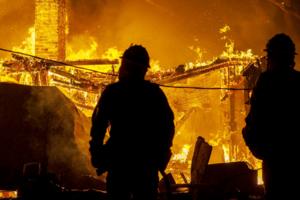
Recipe for LA's fire disaster: Intense rains followed by unprecedented heat and dry conditions
LOS ANGELES — One fire appears to have been caused by a spark from old power lines, the other allegedly started by an Uber driver with a fascination with flames.
In the end, the Eaton and Palisades fires destroyed more than 16,000 homes, businesses and other structures and left 31 people dead. They were the second and third most destructive ...Read more

The fire took his sister and his lifelong home. He's been fighting to get back ever since
LOS ANGELES — Shortly after his childhood home burned down in west Altadena, Zaire Calvin learned his mom's insurance carrier had dropped her months before. He handled her bills but said he hadn't received any email or notice from Allstate before the January wildfire.
For weeks, he tried to get answers, waiting on returned calls, asking for ...Read more

Failed emergency alerts during LA firestorms eroded public trust. How to fix a broken system?
LOS ANGELES — During the first days of the January firestorms, Los Angeles became a case study in what can go wrong with emergency alerts and evacuations.
In Pacific Palisades there was chaos Jan. 7 as people in the foothills tried to flee, only to hit traffic gridlock. Then when the Eaton fire erupted in Altadena, evacuation orders did not ...Read more
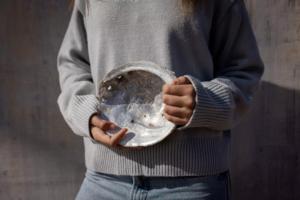
A teenager processes life after disaster. 'My whole life was stripped away'
LOS ANGELES — Kiley Hoiles doesn't want to keep talking about the Palisades fire.
She is 15. And it's been nearly a year since the blaze incinerated her family's cozy little house on Edgar Street in Pacific Palisades. And her entire neighborhood. And her old elementary school, Marquez Charter. And the dojo where she trained three times a week...Read more
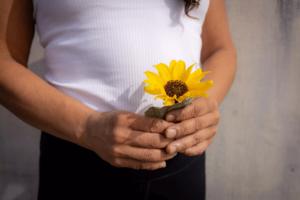
This housekeeper lost her job in the Palisades fire -- but not her hope
LOS ANGELES — Via de Las Olas was once a scenic drive in Pacific Palisades, perched above Will Rogers State Beach, offering sweeping views of ocean and sky. Now it resembles an archaeological site of its former self.
"There were beautiful homes here, people would walk with their dogs in the morning when I would get here," said Amalia Atayde, ...Read more
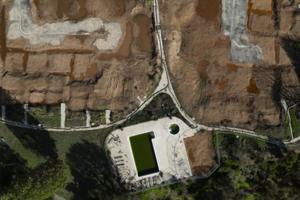
LA's hydrants ran dry during the fires. Residents are still demanding solutions
LOS ANGELES — As the flames of the Palisades fire licked at his home, Ricardo Kawamura stood in his front yard watching smoke pour out of a second-story window. He saw a fire engine parked next to a hydrant on his street, and called for help.
“They told me they did not have enough water,” Kawamura said. “And unfortunately, there was ...Read more
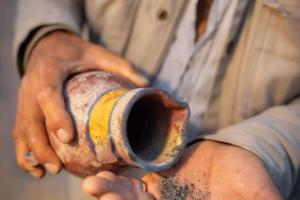
On a $1 houseboat, one of the Palisades fire's 'great underdogs' fights to stay afloat
LOS ANGELES — Rashi Kaslow sat on the deck of a boat he bought from a friend for just $1 before the fire. After the blaze destroyed his uninsured home in the Palisades Bowl mobile home park — which the owners, to this day, still have not cleared of fire debris— the boat docked in Marina del Rey became his home.
“You either rise from the...Read more
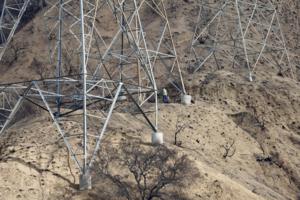
Edison neglected maintenance of its aging transmission lines before the Jan. 7 fires. Now it's trying to catch up
LOS ANGELES — Southern California Edison did not spend hundreds of millions of dollars on maintenance of its aging transmission lines that it told regulators was necessary and began billing to customers in the four years before the Jan. 7 wildfires, according to a Times review of regulatory filings.
Edison told state regulators in its 2023 ...Read more
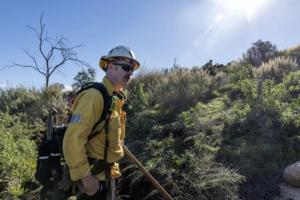
After Palisades failures, is LAFD prepared for the next major wildfire?
LOS ANGELES — As the Palisades fire raged, then-Los Angeles Fire Department Chief Kristin Crowley went on a television blitz, calling out city leadership for systematically underfunding her agency.
The LAFD, she said, didn’t have enough firefighters, based at enough fire stations, to quench the wind-driven flames that were tearing through ...Read more
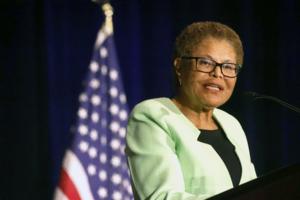
'Both sides botched it.' Bass, in unguarded moment, rips responses to Palisades, Eaton fires
LOS ANGELES — The setting looked almost cozy: Los Angeles Mayor Karen Bass and a podcast host seated inside her home in two comfy chairs, talking about President Trump, ICE raids, public schools and the Palisades fire.
The recording session inside the library at Getty House, the official mayor's residence, lasted an hour. Once it ended, the ...Read more
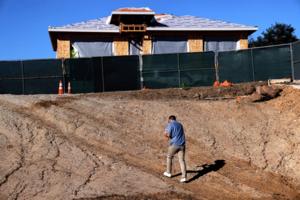
For LA's mayor, a Palisades recovery marked by missteps, reversals and delays
LOS ANGELES — It was supposed to be a speech with a clear message of hope for survivors of the Palisades fire.
In her State of the City address in April, Los Angeles Mayor Karen Bass called for a law exempting fire victims from construction permit fees — potentially saving them tens of thousands of dollars as they rebuild their homes.
...Read more

1 in 500 Alaskan deaths during pandemic was from COVID-19, state reports
ANCHORAGE, Alaska — Over a roughly three-year period beginning in March 2020, 1,564 Alaskans died from COVID-19.
That's according to a new report from the Alaska Department of Health, which provides a detailed review of data on how the state fared dealing with the coronavirus between March 2020 and the end of the the federal public health ...Read more

'Betrayed': Investors grapple with Trump commuting sentence of man who defrauded them
WASHINGTON — Jeffrey Rosenberg is still trying to understand why President Donald Trump would free the man who defrauded him out of a quarter of a million dollars.
Rosenberg, a retired wholesale produce distributor living in Nevada, has supported Trump since he entered politics, but the president's decision in November to commute the sentence...Read more
Popular Stories
- Nick Reiner's schizophrenia meds made him 'erratic,' sources say
- 'Betrayed': Investors grapple with Trump commuting sentence of man who defrauded them
- On a $1 houseboat, one of the Palisades fire's 'great underdogs' fights to stay afloat
- Trump administration will not release full 'Epstein files' by deadline as Democrats call for probe
- 'Both sides botched it.' Bass, in unguarded moment, rips responses to Palisades, Eaton fires





